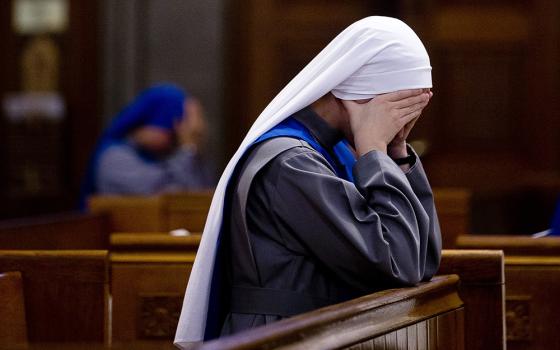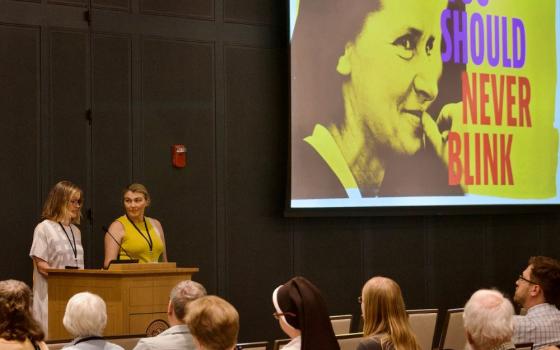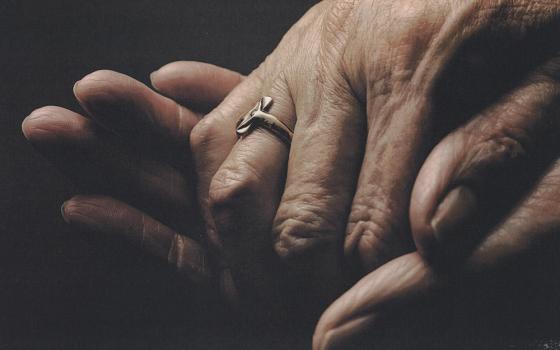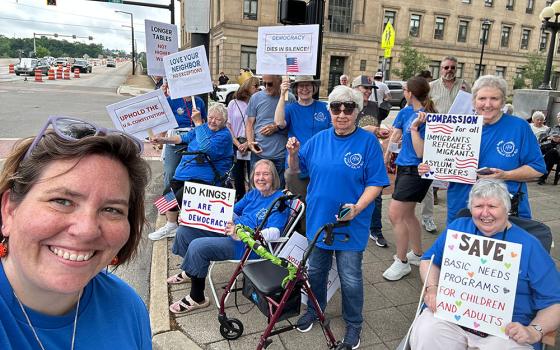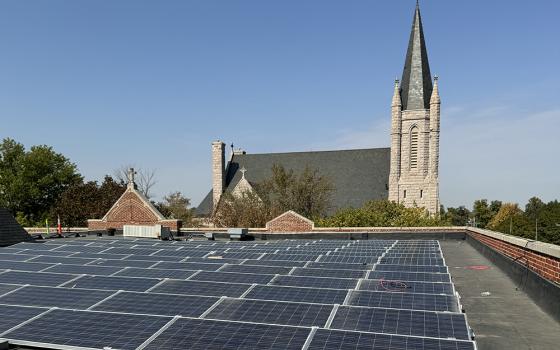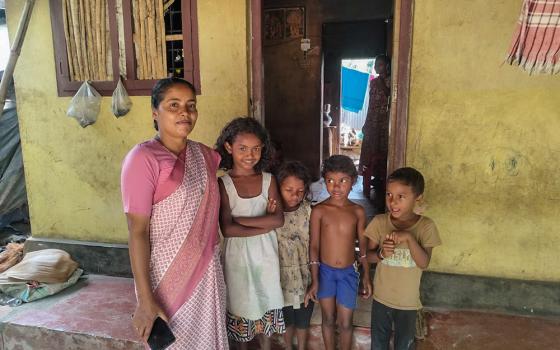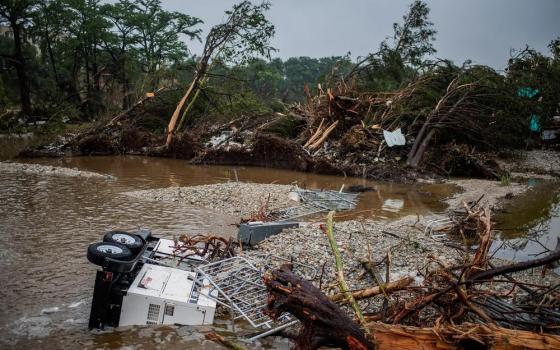
The International Union of Superiors General (UISG) has introduced a new logo and a revamped website (www.uisg.org). (Courtesy of UISG)
The International Union of Superiors General, the Rome-based organization of leaders of the world's congregations of Catholic women, has introduced a new logo.

The new logo, as well as a launch of a revamped website (www.uisg.org), were announced Jan. 26 in anticipation of the start of the organization's assembly, which will begin with meetings in March and continue through July.
UISG represents 1,903 members who are leaders of congregations in 97 countries.
The new "playful, dynamic and colorful logo" is part of a new digital identity of the UISG, the alliance said in a statement.

The International Union of Superiors General (UISG) has introduced a new logo and a revamped website (www.uisg.org). (Courtesy of UISG)
Three principles are attached to the logo, UISG said. The movement of the four letters that compose the acronym UISG evokes the symbol of infinity; the four letters are always joined and symbolize unity, the sense of participation, inclusiveness and solidarity among its members; and the diversity of colors – red, yellow, blue and green — express community, interconnection and internationality, UISG said.
In a statement, Sr. Jolanta Kafka, UISG president, said, "The new identity of the UISG aims at combining tradition and modernity, past and present, unity and internationality; so that all 1903 member Congregations can feel that important sense of belonging that makes us 'one in multiplicity.' "
Patrizia Morgante, who heads communications for UISG, added, "In deciding to launch a 'rebranding' operation, it goes unsaid that some elements remain unchanged while others instead, follow a natural evolution: we want the new identity to convey what the UISG is today and that the logo expresses with simplicity and straight-forwardness."
Sister' new online toolkit against trafficking now available
To coincide with National Human Trafficking Prevention Month and the feast day of St. Josephine Bakhita, U.S. Catholic Sisters Against Human Trafficking have released a 2022 toolkit.
The feast day of St. Josephine Bakhita, an enslaved African who died in 1947, is Feb. 8. A tapestry that depicts her hangs from the facade of St. Peter’s Basilica during her canonization in 2000 at the Vatican in this file photo. (CNS/Reuters/L'Osservatore Romano)
The 25-page online guide provides background information on trafficking and ways faith communities can respond to this urgent international problem.
"Calculated as a 150-billion-dollar industry, trafficking in persons has become the fastest growing source of illicit profit for criminals worldwide," the guide notes.
"There are an estimated 40.3 million victims of human trafficking worldwide. Of these, 25 million are victims of labor or sex trafficking and 15 million are people trapped in forced marriages. Nearly 30% of all victims are men and boys, and an astounding 1 in 4 victims are children."
U.S. Catholic Sisters Against Human Trafficking, a coalition of more than 100 U.S. congregations, describes itself as a "collaborative, faith-based national network that offers education, supports access to survivor services, and engages in advocacy to eradicate modern-day slavery."
The feast day of St. Josephine Bakhita (1869-1947), born an enslaved person in Sudan and who became a Canossian sister and was canonized in 2000, falls on Feb. 8, which marks the International Day of Prayer and Awareness Against Human Trafficking.
Advertisement
Nuns & Nones announce courses focused on land justice
The alliance Nuns & Nones has announced two online courses focused on environmental justice issues. Both courses are part of the alliance's Land Justice Project, which "works to expand the options available to religious communities about their land legacy."
One course, entitled Land Justice Futures, uncovers new models for congregational land transitions "while still caring for communities' real needs," a course announcement said.
The course will draw on "land-based collaborations for climate and racial justice; wide-ranging financial and legal options; and the deep and ongoing spiritual work of decolonization and solidarity."
The five-part course, to be held on Zoom, is scheduled for March 10, March 24, April 7, April 21, and April 28. All courses run 4-5:30 p.m. EST.
A second course focuses on reading and discussing the book "Healing Haunted Histories: A Settler Discipleship of Decolonization" by Elaine Enns and Ched Myers. The book was published in 2021.
Nuns and Nones’ learning coordinator, Eric Anglada, will lead a four-part discussion of the book 3-4:30 p.m. CST, Feb. 14, Feb. 28, March 14 and March 28.
The book examines how personal and communal histories and landscapes are haunted by continuing dispossession of indigenous communities, and asks how people can "transform our colonizing self-perceptions, lifeways and structures, and how might we practice restorative solidarity with Indigenous communities today?"
Information about both courses are available here.
Nuns & Nones is an interfaith, intergenerational movement that unites spiritually curious millennials and Catholic sisters in conversations regarding community, social justice and contemplation.

